Let’s Talk About Your Guns
As part of CSTS's efforts in understanding and intervening to prevent suicide and informed by the Center's STARRS study (Study to Assess Risk and Resilience in Service Members)
Let’s Talk About Your Guns
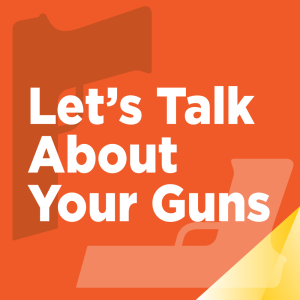 How can we have open-minded talks about gun safety? It’s vital considering 40% of Americans have a gun at home. This series unpacks real-life scenarios around guns and suicide, dementia, children, health care workers, and more. Through stories and interviews, we offer practical and non-judgmental ways to talk about gun safety in tough situations. With the right tools, you can have conversations that meet people where they are. This isn’t a show about taking sides — it’s about saving lives.
How can we have open-minded talks about gun safety? It’s vital considering 40% of Americans have a gun at home. This series unpacks real-life scenarios around guns and suicide, dementia, children, health care workers, and more. Through stories and interviews, we offer practical and non-judgmental ways to talk about gun safety in tough situations. With the right tools, you can have conversations that meet people where they are. This isn’t a show about taking sides — it’s about saving lives.
Have thoughts on the podcast or an idea for a new episode? We'd love to hear them! Share your feedback through our contact form. And, don't forget to leave us a review on your favorite podcast platform.
Episode 2-07: Looking Back, Moving Forward: There’s Still More to Talk About
As we close out two seasons of Let’s Talk About Your Guns, we reflect on what we’ve learned about secure firearm storage and its role in preventing suicide. Are people getting the message? What barriers still stand in the way? And how can we move forward?
In this episode, we reconnect with past guests Dr. Emmy Betz, Reba Rice-Portwood, Jay Zimmerman, Dr. Mike Anestis, Dr. Joseph Simonetti, and Julie Still, to talk about what has changed—and what still needs to. One theme remains clear: meaningful change happens through trust, connection, and meeting people where they are.
Whether you’re a gun owner, a healthcare provider, or simply someone who cares about saving lives, this conversation highlights the power of small steps, open dialogue, and the courage to start the conversation.
Transcript of the episode can be found HERE.
Episode 2-06: Protection vs. Risk


When Bill Mays first started carrying a gun, he believed it was the key to his personal safety. As a firearms trainer and enthusiast, he had guns everywhere—until one moment of crisis changed everything. In this episode of Let's Talk About Your Guns, Bill shares his journey from firearm advocate to safe storage educator, revealing how a missing gun saved his life.
Dr. Curt West is also joined by Dr. Tara Warner to explore the psychology behind protective gun ownership and why the perception of safety often overshadows real risks. Together, they unpack the tension between security and accessibility, offering insights on how open conversations about safe storage can prevent tragedy—without compromising protection. Transcript of the episode can be found HERE
Episode 2-05: Gatekeepers 2.0: Family Law


Leslie Hu was in a custody dispute with her ex-husband when he took his own life and that of their son, Pierce, in an act of gun violence. Tragically, her story highlights a growing crisis: filicide during custody battles, a lethal combination of conflict and firearm access. Leslie and family law attorney Monica Mazzei share their journey to create Pierce’s Pledge. Their movement encourages family law attorneys to require clients to remove guns from the home during disputes. One simple precaution—removing firearms from the home during emotionally charged times—can prevent tragedy. This episode is about creating safe spaces for children and families and using practical measures to save lives when tensions run high. Transcript of the episode can be found HERE
Episode 2-04: Teens and Triggers: Surviving the Impulse
Learn More About Today's Guests, Carson and Amber Molle


Carson Molle was a typical teenager, but he kept a dark secret. As he struggled in school and sports, he became depressed. Then one day he tried to end his own life, but survived. In this episode, Carson and his mother Amber talk about safe gun storage in their family and the importance of preventing unsupervised access by teens. Dr. Stephen Cozza, child psychiatrist, joins the conversation to explore teenage impulsivity, mental illness, and the critical need for parents to have open discussions about mental health and firearm safety. Transcript of the episode can be found HERE.
Episode 2-03: Gun Shops Would Like a Word
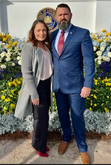

In this episode of Let's Talk About Your Guns, Dr. West speaks with gun shop owners Caleb Morse and Jacquelyn Clark about their experiences with firearm storage and suicide prevention. They discuss how their shops handle the delicate process of accepting firearms for storage, often due to personal crises, and the importance of building trust with customers. The conversation also covers the critical role gun dealers have in preventing firearm suicides by engaging in open, direct conversations and ensuring that safe storage practices are understood and implemented at home. The discussion highlights the nuanced challenges of balancing safety, access, and responsibility in the firearms industry. Transcript of the episode can be found HERE.
Episode 2-02: Empowered and Armed – Women and Firearms
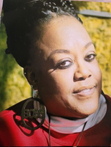

In this episode of Let's Talk About Your Guns, Dr. West sits down with Reba Rice-Portwood, a former corrections officer who shares her deeply personal journey from witnessing gun violence to becoming a single mother struggling with the realities of firearm ownership. Reba opens up about the terrifying encounter that led her to purchase a firearm and the tragic loss of her son that changed her perspective on having a firearm in her home. Joined by Dr. Lindsay Monteith, a clinical research psychologist specializing in suicide prevention, they discuss the rising trend of gun ownership among women and the unique challenges that women with firearms may face. Through candid conversations, this episode delves into the critical importance of trauma-informed approaches to women and firearm safety and the life-saving potential of open, empathetic dialogue about safe gun storage. Transcript of the episode can be found here. Transcript of the episode is available HERE.
Episode 2-01: Your Guns? Why Should I Care?


“But I don’t own guns, and I don’t know anyone who does.” Think again, guns are present in 43 percent of American households. In this episode of Let's Talk About Your Guns, Dr. Curt West is joined by podcast production team member Kristina Medvescek and Dr. John Bradley from the VA Boston Healthcare System to discuss the importance of relevance of firearm safety conversations, even for those who may not initially recognize their significance. Whether you're a firearm owner or not, this episode will equip you with the knowledge and confidence to have meaningful conversations about firearm safety with people in your life. Transcript of the episode is available HERE.
Resources:
Episode 1-08: Extreme Risk Protection Orders


Sometimes conversations about safe storage break down. Someone you care about has ready access to firearms, but they are behaving in ways that you know make them unsafe. Extreme Risk Protection Orders were created to meet that need. We hear from Dorothy Paugh, who was instrumental in getting Extreme Risk Protection Orders - or Red Flag laws - passed in her home state of Maryland. We also talk to Dr Shannon Frattaroli about the effectiveness of these laws in preventing gun violence. Finally, we talk with Montgomery County Maryland Sheriff Darren Popkin about how these laws really work in the community. Transcript of this episode can be found here.
Episode 1 -07: Partners in Safety

Four in ten American households own guns. Yet many couples may never discuss safe storage until there is a crisis situation. In this episode, we discuss how to talk about guns, safety and risk with those who are the closest and most important people in our lives: our spouses and partners. We hear from Julie Still, whose conversation about safe storage with her husband may have saved his life. We’ll also hear from Dr. Leanne Knobloch, who offers guidance for spouses who want to talk about firearm safety but aren't sure how to do it. Transcript of this episode can be found here.
Episode 1-06: Gatekeepers


Each year thousands of ordinary Americans have a chance to say "Yes" to saving the life of a colleague, neighbor, or acquaintance. How? Simply by having a conversation about firearm safety. In this episode, we explore how trusted members of a community act as gatekeepers in suicide prevention. We hear from Reverend Seth Still, whose experience with his own guns in a dark time changed the conversations with the people he serves. We’ll also hear from Dr. Rajeev Ramchand, an epidemiologist who discusses how gatekeepers can make a difference. Transcript of this episode can be found here.
Episode 1-05: I've Got Your Back, Buddy
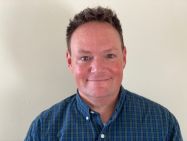
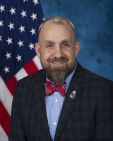
Anything to help a friend… Those aren’t just words. In this episode we talk about the importance of peer conversations about firearm safety as a way to prevent suicide. We hear from Jay Zimmerman, a veteran whose approach to conversations about safe storage changed after his best friend died by suicide. We also talk to Dr Adam Walsh, a suicide prevention researcher who shares why peer conversations might be some of the most effective ways to improve gun safety and prevent suicide. Transcript of this episode can be found here.
Episode 1 -04: Doctors and Patients


Should gun safety be part of medical training? Most health care providers talk to patients about quitting smoking, but not firearm safety. Both are major causes of preventable death. We hear from Dr. Mary Campagnolo, a physician who wonders if a conversation about guns and safety would have prevented the suicide of a patient. We also talk to Dr Joseph Simonetti, a primary care physician, about ways for health care providers to have constructive conversations with patients about gun safety. Transcript of this episode can be found here. Transcript of this episode can be found here.
Episode 1 -03: Keeping Kids Safe


How do you talk to other parents about guns? We offer tips on how to have this vital conversation — one many parents overlook. From 2015-2020, there were at least 2100 unintentional shootings by children, 800 of them fatal. All of these incidents were preventable. Hear from District Attorney Matthew Weintraub as he shares the heart-wrenching story of 2-year-old Benjamin Smith who accidentally shot himself with a gun left on a nightstand. We also talk to Dr. Alison Tothy about safe gun practices in our own homes and in the homes of others. The takeaway is ASK: Asking Saves Kids. Transcript of this episode can be found here.
Episode 1 -02: Times of Crisis

What do you say to a loved one when you’re worried about their access to guns? What if you’re worried they may attempt suicide? Prevention starts with having a conversation about how to put barriers and time between a suicidal impulse and a fatal act. In this episode, we’ll talk with David McDaniel whose son tragically died by firearm suicide. We’ll also talk with Dr. Mike Anestis, a suicide and gun safety expert, who offers guidance on talking about alternative storage in times of crisis. Transcript of this episode can be found here.
Episode 1-01: Dementia and Gun Safety
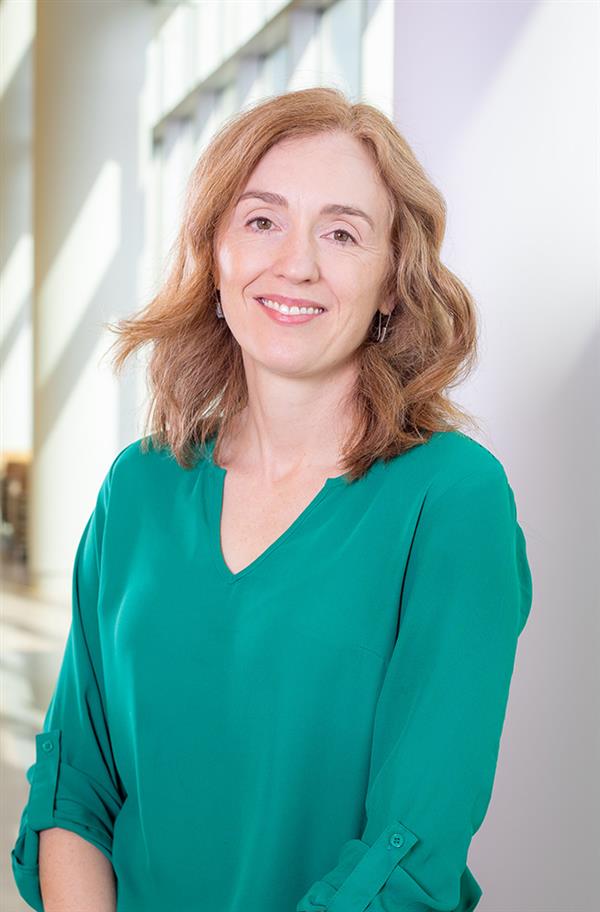
There are proven ways to navigate dementia, aging and gun ownership. Hear the story of Karen Meushaw, who dealt firsthand with aging parents, dementia and firearms. We also get expert advice from Dr. Emmy Betz, an ER physician and firearm safety researcher, who reveals what we know about older adults and gun safety. This episode will inform and empower families and friends with practical advice for tough conversations and ideas on how to plan ahead. Transcript of this episode can be found here.
Gun facts:
- Of 81 million gun owners in the US, one-third are over age 65.
- Cognitive, visual, or other impairments can affect the ability to safely maintain firearms.
- Family members and friends are typically the first to notice these changes.
Back to podcasts
The opinions and assertions expressed herein are those of the author(s) and do not reflect the official policy or position of the Uniformed Services University of the Health Sciences or the Department of Defense.
The contents of this publication are the sole responsibility of the author(s) and do not necessarily reflect the views, opinions or policies of The Henry M. Jackson Foundation for the Advancement of Military Medicine, Inc. Mention of trade names, commercial products, or organizations does not imply endorsement by the U.S. Government.

